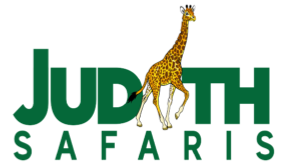Chimpanzee Tracking in Nyungwe Forest National Park is a thrilling primate adventure that draws thousands of nature enthusiasts and researchers each year. Located in southwestern Rwanda, Nyungwe Forest National Park is one of Africa’s most pristine and biodiverse rainforests, covering approximately 1,019 square kilometers. It is home to over 13 primate species, including the elusive and intelligent chimpanzees (Pan troglodytes). Tracking these fascinating primates offers visitors a rare opportunity to observe their social behaviors, feeding habits, and interactions in their natural habitat. This adventure is not only an unforgettable experience but also contributes significantly to conservation efforts and sustainable tourism in Rwanda.
Nyungwe Forest is one of the oldest rainforests in Africa, believed to have existed for over 60 million years. It serves as a vital biodiversity hotspot, hosting over 1,068 plant species, 322 bird species, and 85 mammal species. Additionally, it is a major water catchment area, supplying fresh water to the Nile and Congo River basins. Officially designated as a national park in 2004, Nyungwe has since gained global recognition for its primate diversity, stunning landscapes, and ecological significance.
The forest is home to an estimated 500 chimpanzees, with about 60 habituated individuals available for trekking. These chimpanzees are found primarily in two main areas: Cyamudongo Forest, a small, isolated patch near the western boundary of Nyungwe, and the Uwinka Sector in the central part of the park. Cyamudongo is the most popular trekking site due to its high success rate of chimpanzee sightings. These forests provide the perfect environment for chimpanzees, with abundant fruit-bearing trees, dense vegetation, and essential water sources for their survival.
Chimpanzee tracking is an early morning activity that requires physical endurance and patience, as the trek can be both challenging and rewarding. To participate, visitors must obtain a chimpanzee tracking permit, which costs $90 per person and can be acquired through the Rwanda Development Board (RDB). The adventure begins at 4:30 AM with a briefing at the park headquarters, where visitors are assigned to small groups (maximum of 8 people) and given guidelines on chimpanzee behavior, safety precautions, and hiking expectations. Experienced rangers and trackers are already out in the forest, locating the chimpanzees based on their previous day’s movements.
Trekking through Nyungwe’s dense jungle is an adventure in itself, as the terrain is rugged, with steep slopes and thick vegetation. The duration of the trek varies, typically lasting between one to four hours. Along the way, visitors may encounter other primates such as Rwenzori colobus monkeys, blue monkeys, L’Hoest’s monkeys, and grey-cheeked mangabeys. Nyungwe is also home to a diverse array of bird species, making it a paradise for birdwatchers.
Once the chimpanzees are located, visitors are allowed a maximum of one hour to observe them in their natural environment. Unlike gorillas, chimpanzees are highly mobile and often move swiftly through the trees, creating an exciting challenge for photographers and wildlife enthusiasts. During this time, visitors may witness fascinating behaviors such as grooming sessions between individuals, playful interactions among young chimps, foraging and tool use, and loud vocalizations accompanied by drumming on tree trunks. Sharing 98.7% of their DNA with humans, chimpanzees exhibit incredibly expressive and intelligent behaviors, making the experience even more captivating.
Chimpanzee tracking in Nyungwe is available year-round, but the best time to visit is during the dry seasons from June to September and December to February. During these months, trails are less muddy and more navigable. However, since Nyungwe is a tropical rainforest, rain showers can occur at any time. The wet seasons, from March to May and October to November, bring lush vegetation and abundant fruit, increasing the chances of finding chimps closer to trekking paths.
Proper preparation is essential for a successful and comfortable chimpanzee tracking experience. Visitors are advised to wear sturdy, waterproof hiking boots, lightweight long-sleeved shirts and pants for protection against insects and thorny vegetation, and a rain jacket due to sudden downpours. Gloves are useful for gripping vegetation while hiking, and binoculars enhance birdwatching opportunities. Carrying drinking water, snacks, and a camera (without flash) ensures a smooth and enjoyable trek.
Accommodation options near Nyungwe cater to a range of budgets and preferences. Luxury lodges such as One&Only Nyungwe House provide high-end amenities and stunning forest views, while mid-range options like Nyungwe Top View Hill Hotel offer comfortable accommodations with breathtaking scenery. Budget-conscious travelers can opt for Gisakura Guest House, a cozy and affordable lodge near the park entrance.
Chimpanzee tracking plays a crucial role in conservation and sustainable tourism. Revenue from permits funds conservation programs, anti-poaching patrols, and habitat preservation efforts. Additionally, local communities benefit through employment opportunities and cultural tourism initiatives, while scientific research and chimpanzee monitoring programs contribute to the long-term survival of these primates. Nyungwe’s conservation efforts ensure the ecological integrity of the park while supporting chimpanzee population growth and habitat protection.
Chimpanzee tracking in Nyungwe Forest National Park is a unique and unforgettable wildlife experience. It offers adventure seekers and nature lovers the chance to witness one of our closest relatives in the wild while contributing to their protection. Whether you are a primate enthusiast, a photographer, or simply an explorer, a journey into the heart of Nyungwe promises breathtaking scenery, thrilling encounters, and a deep appreciation for Rwanda’s extraordinary biodiversity.

